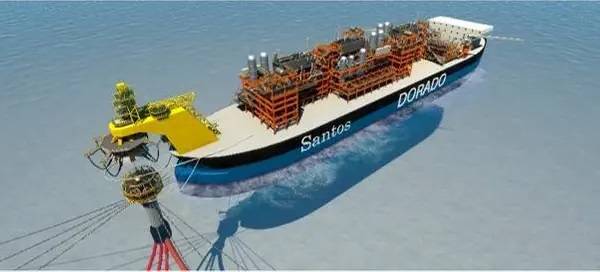
Activist shareholders opposed Australian oil and gas explorer Santos' growth strategy on Thursday, saying executive incentives are driving up investments in upstream growth projects, potentially raising carbon emissions and reducing shareholder value.
Activist investor groups Snowcap Research and Market Forces on Thursday separately highlighted Santos' executive incentives driving new high-cost, high-risk and decades-long upstream production, calling it misaligned with shareholder interests and climate goals.
Market Forces said it filed a statement on behalf of 100 shareholders urging all investors in Santos to vote against the explorer's remuneration report at the upcoming annual general meeting on April 6.
Santos' remuneration structure is designed to incentivize the management to achieve its "purpose and vision to provide cleaner energy that is both affordable and sustainable," the company said in response, recommending its shareholders vote in favor of the report.
Investors mounted resistance to the 2022 remuneration report in a "first strike" last year when more than 25% of the shareholders opposed it. If 25% or more shareholders oppose the report this year as well it would be considered a "second strike," potentially requiring the entire board to stand for re-election.
"Santos' rampant pursuit of new fossil fuel production, sanctioned by the board and incentivised with big executive bonuses, represents an abject failure of corporate governance," said Will van de Pol, acting executive director at Market Forces.
Santos' increasing oil and gas output plans were likely to see its total emissions increase by 40% from 2022 to 2030, per a Market Forces analysis, while Woodside Energy WDS.AX was projected to emit 40% more from 2022 to 2027.
Santos has "lost its way," London-based Snowcap said in a letter to the board.
It also sought for an overhaul of Santos' growth strategy, saying it is "misguided and reckless," and advocated reforms it claimed could increase shareholder value by as much as 50%. Santos has committed to $7 billion of new growth projects since 2021 and has another $6 billion of potential spending targeted for final investment decisions, which represents "by far the most aggressive upstream capex plan" in the sector, Snowcap said. The investor said Santos "must take urgent action to reduce its upstream capex, increase capital returns, and realign executive incentives."
Saul Kavonic, head of integrated energy and resources at Credit Suisse said "the market has baked in value for growth such as Papua and Dorado, so Santos cannot shelve these projects in favour of capital returns without a negative share price and writedowns impacts."
"A narrative and governance reset at Santos is needed, but perhaps mergers and acquisitions to improve the near term catalyst outlook, aid balance sheet position, and enhance scale and appeal to global investors is more appropriate."
Santos and Woodside did not immediately respond to Reuters' request for comments. Shares of Santos and Woodside advanced more than 1% each, against a marginal rise in the ASX 200 benchmark index,
($1 = 1.5181 Australian dollars)
(Reuters - Reporting by Sameer Manekar and Riya Sharma in Bengaluru; additional reporting by Navya Mittal; Editing by Rashmi Aich and Dhanya Ann Thoppil)